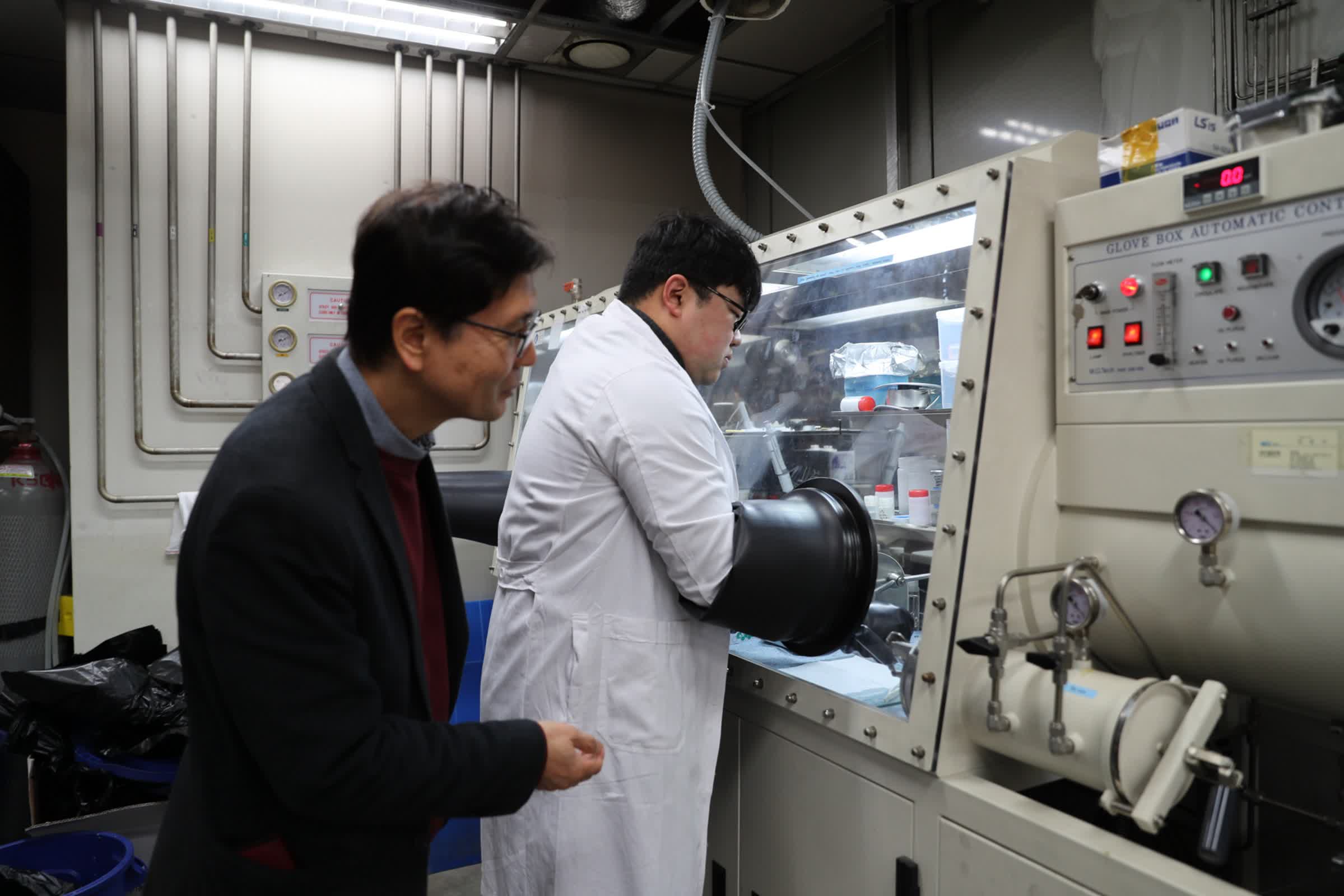TL;DR: Recent advancements in lithium-sulfur battery technology have been reported by two independent research teams, each tackling key challenges in commercializing these energy storage devices. One team concentrated on enhancing the cathode material, while the other developed an innovative solid electrolyte.

In the first study, a team led by Professor Jong-sung Yu at the DGIST Department of Energy Science and Engineering developed a nitrogen-doped porous carbon material to enhance the charging speed of lithium-sulfur batteries. This material, synthesized using a magnesium-assisted thermal reduction method, acts as a sulfur host in the battery cathode. The resulting battery exhibited remarkable performance, achieving a high capacity of 705 mAh g⁻¹ even when fully charged in just 12 minutes.
The carbon structure, formed by the reaction of magnesium with nitrogen in ZIF-8 at high temperatures, enabled higher sulfur loading and improved electrolyte contact. This advancement resulted in a 1.6-fold increase in capacity compared to conventional batteries under rapid charging conditions. Furthermore, the nitrogen doping effectively suppressed lithium polysulfide migration, allowing the battery to retain 82 percent of its capacity after 1,000 charge-discharge cycles.
Collaboration with Argonne National Laboratory revealed that lithium sulfide formed in a specific orientation within the carbon material's layered structures. This finding confirmed the benefits of nitrogen doping and the porous carbon structure in boosting sulfur loading and accelerating reaction speed.

A separate study by Chinese and German researchers introduced a solid electrolyte designed to address the slow chemical reaction between lithium ions and elemental sulfur. This innovative electrolyte is a glass-like material composed of boron, sulfur, lithium, phosphorus, and iodine.
The standout feature of this study is the inclusion of iodine in the electrolyte. Thanks to its rapid electron exchange capabilities, iodine acts as an intermediate in electron transfer to sulfur, dramatically accelerating electrode reactions. Researchers propose that iodine's mobility within the electrolyte may allow it to function as an electron shuttle.
The performance results were equally impressive. When charged at an extremely fast rate – achieving a full charge in just over a minute – the battery retained half the capacity of one charged 25 times more slowly. At an intermediate charging rate, the battery retained over 80 percent of its initial capacity after more than 25,000 charge-discharge cycles. This level of durability far exceeds that of conventional lithium-ion batteries, which typically experience similar capacity degradation after only about 1,000 cycles.
Together, these advancements bring lithium-sulfur batteries closer to practical implementation. The DGIST team's work demonstrates the promise of advanced cathode materials in rapid-charging scenarios, while the Chinese-German collaboration highlights the transformative potential of solid electrolytes in improving battery longevity and charging speed.
Lithium-sulfur battery advancements promise faster charging and longer life